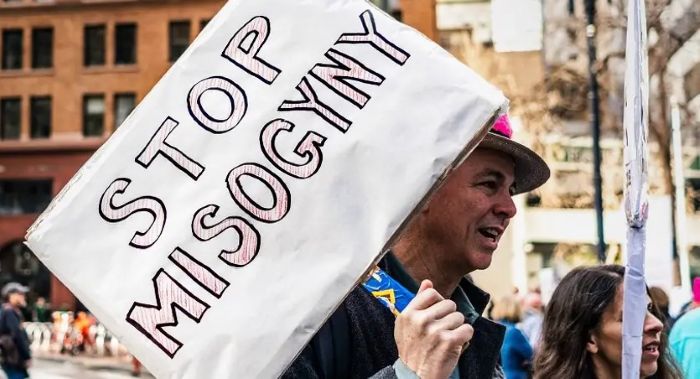Misogyny: UN Flags ‘Manosphere’ as Emerging Threat to Gender Equality, Digital Safety

The United Nations is sounding the alarm on the rise of the “manosphere”—a sprawling network of online communities promoting hyper-masculinity, misogyny, and anti-feminist ideologies—as a growing digital threat with real-world consequences for gender equality, mental health, and democratic resilience.
In a sobering briefing, UN Women, the agency dedicated to gender equality, warned that what once existed in obscure corners of the internet is now seeping into classrooms, boardrooms, and even policy conversations—reshaping the way a generation of boys and men view women, power, and relationships.
“These digital spaces are exploiting young people’s insecurities and distorting masculinity in ways that are fueling a dangerous backlash against women’s rights,” said Kalliopi Mingeirou, Chief of the Ending Violence Against Women and Girls Section at UN Women.
The agency links the trend to the broader weaponisation of social media algorithms that reward provocative, polarising content. The manosphere is not only thriving on such amplification—it’s influencing real-world behaviours, policies, and perceptions across global societies.
What is the Manosphere—and Why It Matters
The term “manosphere” refers to a loose but potent web of blogs, forums, YouTube channels, and social media influencers who promote a worldview centered on male supremacy, resentment toward feminism, and a vision of masculinity that often celebrates dominance, aggression, and control.
According to a recent study by the Movember Foundation, a men’s mental health nonprofit and UN Women partner, two-thirds of young men aged 16–30 regularly consume content from online masculinity influencers. While some offer support on fitness, career development, and fatherhood, a large subset traffics in misogynistic tropes and conspiracy-laced narratives—casting men as victims of “woke culture” and women as inherently manipulative or dangerous.
“We are seeing an increasing number of boys turn to these communities for guidance, only to be indoctrinated with harmful stereotypes that feed online hate and offline violence,” Mingeirou noted.
The Algorithm Problem—and Its Business Implications
The UN’s concerns extend to platform accountability and the economic incentive structures that undergird toxic content. Social media companies, driven by engagement metrics, often reward inflammatory content—creating a vicious cycle where the most extreme voices get the most visibility.
This has far-reaching implications not only for gender relations but for digital governance, advertising ethics, and platform regulation—especially as tech giants face mounting pressure from regulators in the EU, U.S., and parts of Africa to address hate speech and online abuse.
From a business perspective, the rise of digital misogyny is becoming a reputational risk for brands associated with platforms failing to curb toxic content. It also threatens to undermine the economic participation of women, particularly in fields such as journalism, politics, and entrepreneurship where online engagement is now essential.
“When women disengage from digital spaces due to harassment, the whole digital economy loses diversity, creativity, and talent,” said Mingeirou. “It’s not just a gender issue—it’s an economic one.”
A Threat to Democracy—and to Boys Themselves
Beyond harming women, the UN report underscores that young boys and men are themselves collateral damage in this digital ecosystem. The manosphere often capitalises on emotional vulnerabilities, mental health gaps, and feelings of alienation—offering “belonging” in exchange for ideological indoctrination.
This contributes to an erosion of social empathy, civic engagement, and healthy gender norms—and may ultimately fuel radicalisation. The UN cautioned that, left unaddressed, these dynamics could “pose a serious risk to democracy in general.”
Reclaiming Digital Spaces Through Education and Engagement
In response, UN Women is scaling up efforts to counter the manosphere’s influence through a multi-pronged strategy: policy advocacy, youth education, media literacy campaigns, and global partnerships with tech platforms and civil society.
Central to the approach is rebuilding digital ecosystems that promote respect, inclusion, and healthy masculinity.
“It’s not just about protecting girls,” Mingeirou said. “It’s about giving both boys and girls a fighting chance to grow up free of toxic gender expectations and digital harm.”
The agency is also advocating for systemic educational reforms, including age-appropriate lessons on gender equality, digital citizenship, and emotional intelligence as part of national curricula—especially as the world prepares to mark the 30th anniversary of the Beijing Declaration and Platform for Action.
BOTTOM LINE:
The manosphere is no longer a fringe internet curiosity—it is a global, algorithm-powered force that is reshaping the minds of young men, undermining gender progress, and destabilising the digital public square. The challenge now is to reclaim the narrative through policy, education, and digital innovation—before the damage becomes generational.











